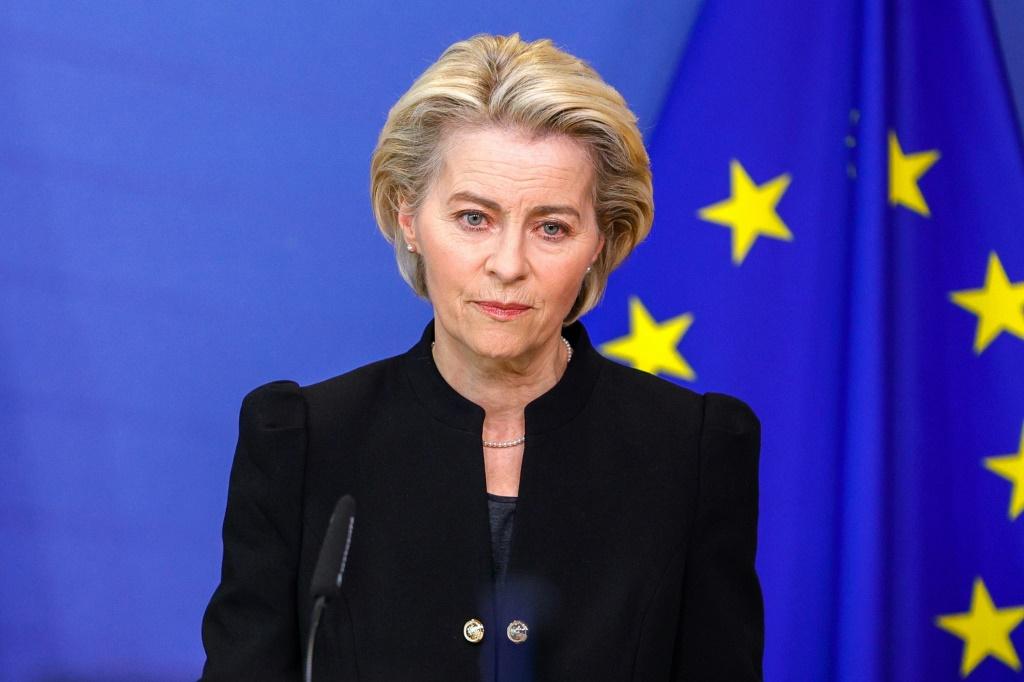
European Parliaments and European Union member states reached an agreement on reforming the immigration system after long and arduous negotiations, but human rights organizations considered that “this agreement constitutes a historic failure” and “will cause more deaths at sea.”
On December 19, European Commission President Ursula von der Leyen praised this “historic agreement” on the Migration and Asylum Charter. European Parliament President Roberta Metsola considered it “probably the most important legislative agreement” in her term, according to the “InfoMigrants” website.
This initiative received praise from Germany, France, Spain, Greece and the Netherlands, as well as Italy, which considered that this reform makes countries on the front lines facing migrant flows “feel that they are not alone.”
On the other hand, Hungary “strongly” opposed to the solidarity measures stipulated in the agreement, the new pact on migration and asylum, which only requires a qualified majority to be adopted.
This charter, presented by the European Commission in September 2020, represents a new attempt to rewrite European regulations, after a previous attempt in 2016 failed in the wake of the refugee crisis.
The goal is to finally approve all the texts before the European elections scheduled to be held in June 2024, noting that the issue of immigration is at the forefront of the political debate in several European countries, against the backdrop of the rise of far-right and populist parties.
The reform, which includes a series of five texts, provides for enhanced monitoring of the operations of migrants arriving to the European Union and the establishment of closed centers near the borders to return those whose applications for asylum are rejected more quickly, as well as a mandatory solidarity mechanism between member countries to help countries facing great pressure.
This political agreement must still be formally approved by both the Council (member states) and the European Parliament.
Filippo Grandi, head of the United Nations High Commission for Refugees, praised on his “X” account (formerly Twitter) “a very positive step,” adding that the UNHCR “is ready to provide advice and assistance.”
However, a group of 15 non-governmental organizations concerned with relief operations at sea considered that “this agreement constitutes a historic failure” and “will cause more deaths at sea.”
Amnesty International noted that the agreement “will increase the suffering” of the exiles, and Oxfam described it as “a dangerous dismantling of the basic principles of human rights and refugee law.”
The reform maintains the current rule that the first country an asylum seeker enters within the European Union is the one that follows up on their file, with some modifications. However, in order to help Mediterranean countries where large numbers of migrants arrive, a mandatory solidarity system is adopted in case the pressures on them become severe.
Other Member States should provide assistance, either by taking over asylum applications (relocating applicants to their territory) or by providing financial or material support.
Commission Vice-President Margaritis Schinas expressed his happiness to see the three major political families supporting this agreement: the European People’s Party (right), the Social Democrats and the Renew Europe Party, adding: “Who will not follow us? The extreme right. This does not bother us.”
Other texts that were agreed upon included an agreement on situations of crisis and force majeure in order to organize the response in the face of a massive influx of migrants to a country in the Union, as was the case during the refugee crisis in 2015-2016.
In this context, the Charter stipulates the principle of mandatory solidarity between member states and the adoption of an exceptional system that is less protective for asylum seekers than the usual procedures, with the possibility of extending the detention period at the external borders of the European bloc.
The European Union is witnessing a rise in irregular arrivals to its territory, as well as an increase in asylum requests.
During the first eleven months of 2023, Frontex monitored more than 355,000 attempts to cross the external borders of the European Union, an increase of 17%.
Asylum requests may exceed one million by the end of 2023, according to the European Union Asylum Agency.





